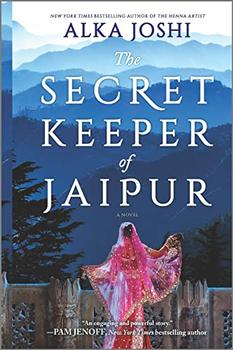Summary | Excerpt | Reading Guide | Reviews | Beyond the book | Read-Alikes | Genres & Themes | Author Bio

What happens when one attempts to exchange the life one is given for something better? Can we transform the possibilities we are born into?
In this stunning novel, prize-winning author Neel Mukherjee wrests open the central, defining events of our century: displacement and migration. Five characters, in very different circumstances - from a domestic cook in Mumbai, to a vagrant and his dancing bear, to a girl who escapes terror in her home village for a new life in the city - find out the meanings of dislocation and the desire for more.
Set in contemporary India and moving between the reality of this world and the shadow of another, this novel of multiple narratives - formally daring, fierce, but full of pity - delivers a devastating and haunting exploration of the unquenchable human urge to strive for a different life.
Across the book's five disparate sections, there is no obvious grand narrative arc, no plot to speak of, no holistic character development or neat resolutions. Instead the reader is left with a glorious, chaotic babel of voices and lives and hopes and suffering of migrants pursuing freedom and economic betterment within the confines of their native country of India. For those willing to play its game, A State of Freedom will prove to be a dazzling and challenging contemplation on beauty and anguish in India...continued
Full Review
(1017 words)
This review is available to non-members for a limited time. For full access,
become a member today.
(Reviewed by Dean Muscat).
The third section of Neel Mukherjee's A State of Freedom follows Lakshman, a young father taking care of two families in the slums of India. When one day Lakshman stumbles upon a stray bear cub wandering about the streets, he sees the animal as his golden ticket to earning a fortune by starting a dancing bear routine.
Dancing bears were a popular animal attraction throughout Europe and Asia during the Middle Ages up until the nineteenth century. The act was also commonplace in various countries of the Indian subcontinent for centuries, and until fairly recently plenty of bear handlers made a living solely from this act.
The process of training a dancing bear usually began while the animal was still a cub. These cubs were typically ...
This "beyond the book" feature is available to non-members for a limited time. Join today for full access.

If you liked A State of Freedom, try these:

by Alka Joshi
Published 2022
In New York Times bestselling author Alka Joshi's intriguing new novel, henna artist Lakshmi arranges for her protégé, Malik, to intern at the Jaipur Palace in this tale rich in character, atmosphere, and lavish storytelling.

Djinn Patrol on the Purple Line
by Deepa Anappara
Published 2021
In this transporting debut novel, three friends venture into the most dangerous corners of a sprawling Indian city to find their missing classmate.
Great literature cannot grow from a neglected or impoverished soil...
Click Here to find out who said this, as well as discovering other famous literary quotes!